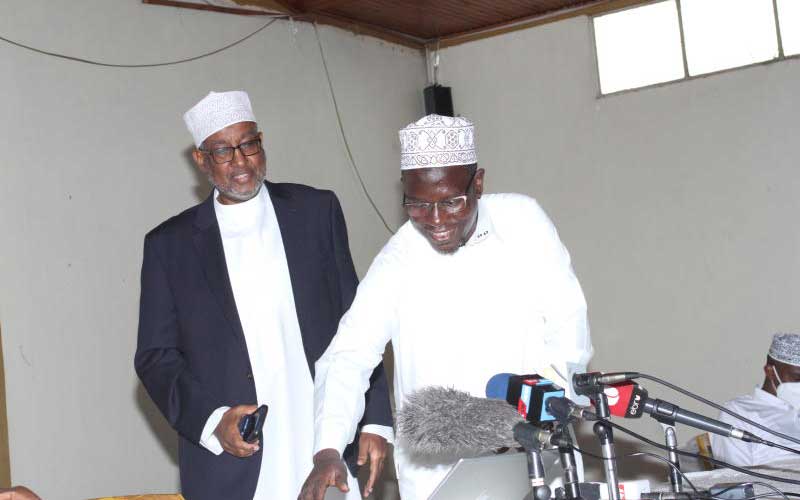×
The Standard e-Paper
Join Thousands Daily

National Muslim Leaders Forum chairman Abdillahi Abdi and Supkem acting chairman Hassan Naado at Kenya Arab Friendship Society offices in Nairobi, yesterday. [Collins Kweyu, Standard]
Muslim leaders are calling for a more inclusive process to amend the Constitution.